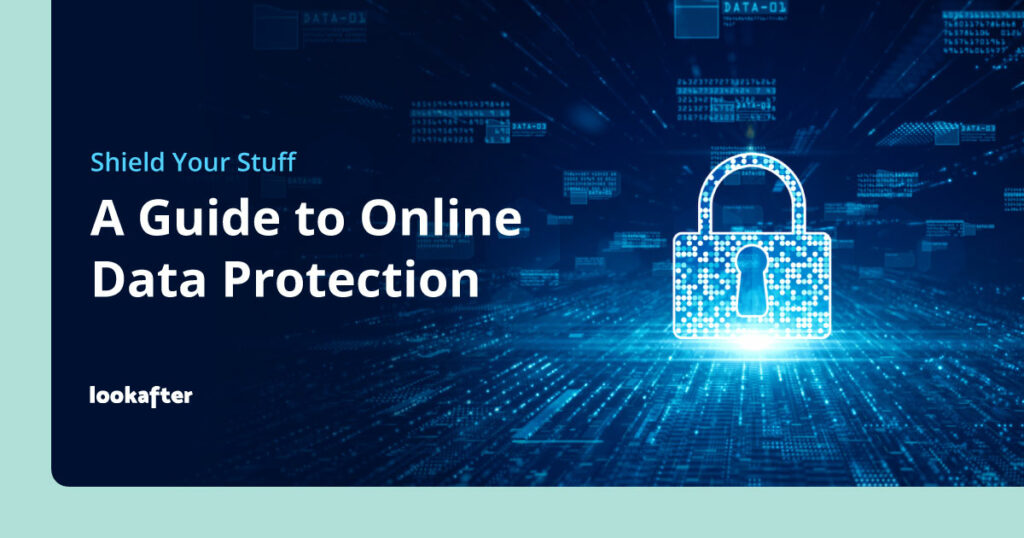Home > Empowering Tips > A Guide to Online Data Protection

We love the convenience of sharing and connecting online, but what about the information we leave behind? This guide isn’t about shutting yourself off from the digital world, it’s about reclaiming your privacy. Keep reading to learn how to navigate the online landscape with confidence and keep your valuable data safe.
1. Fortress Passwords
- Build Strong Passwords: Imagine a password as a lock on your data vault. The stronger the lock, the harder it is to crack. Use a mix of uppercase and lowercase letters, numbers, and symbols. No birthdays, pet names, or dictionary words – those are easy to guess!
- Don’t Reuse Keys: Think of each password as a unique key. Don’t use the same key for different accounts. If one gets stolen, all your accounts are at risk!
- Password Managers: Remembering unique passwords can be a pain. A password manager app securely stores them all for you, so you only need to remember one strong master password.
2. Shields Up for Browsing
- Beware of Shady Sites: Not all websites are created equal. Look for the padlock symbol in the address bar before entering personal information. This means the site encrypts your data, making it scrambled and unreadable to eavesdroppers.
- Public Wi-Fi with Caution: Public Wi-Fi at coffee shops or airports is convenient, but not always secure. Avoid online banking or entering sensitive information on these networks.
- Virtual Private Network (VPN): Consider a VPN for an extra layer of protection on public Wi-Fi. It acts like a tunnel, encrypting your internet traffic and making it harder for snoopers to see your online activity.
3. Data Defence
- Think Before You Share: Social media is fun, but be mindful of what you post. Oversharing personal details like your address or birthdate can make you vulnerable to identity theft.
- App Alert: Not all apps are equal in terms of security and trustworthiness. Before downloading an app, read reviews and check what data it collects. Only install apps from trusted sources.
- Regular Backups: Even the best defences can sometimes falter. Regularly back up your important data on an external hard drive or cloud storage. This way, if something goes wrong, you won’t lose your precious files.
Bonus Tip
Be cautious about emails and messages asking for your personal information. Legitimate businesses won’t pressure you into sharing passwords or account details. If something seems suspicious, don’t click on any links or attachments, and report it as spam.
By following these simple steps, you can create a stronger defence for your sensitive data online. Remember, protecting your information is an ongoing process, but with a little vigilance, you can keep your online world safe and secure.